Quotes & Sayings About Behavioral Health
Enjoy reading and share 10 famous quotes about Behavioral Health with everyone.
Top Behavioral Health Quotes
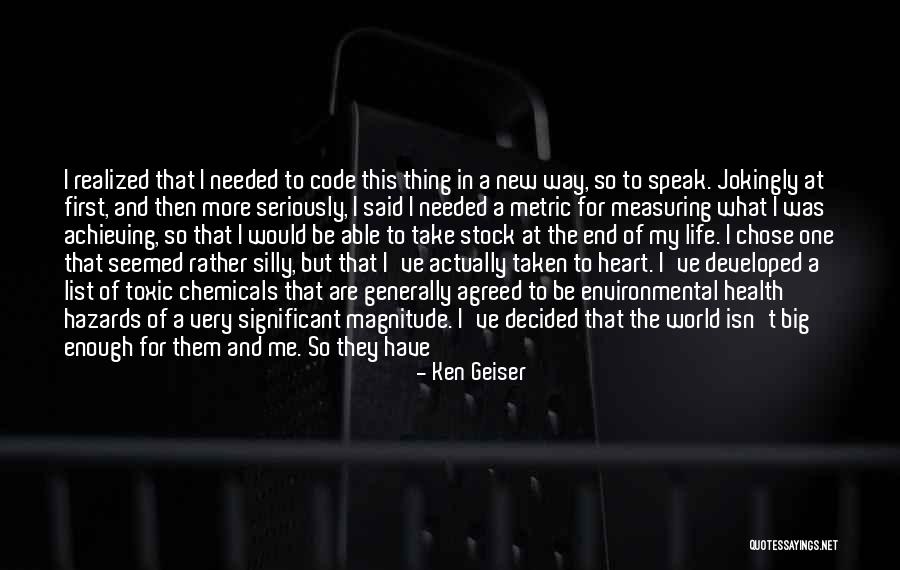
I realized that I needed to code this thing in a new way, so to speak. Jokingly at first, and then more seriously, I said I needed a metric for measuring what I was achieving, so that I would be able to take stock at the end of my life.
I chose one that seemed rather silly, but that I've actually taken to heart. I've developed a list of toxic chemicals that are generally agreed to be environmental health hazards of a very significant magnitude. I've decided that the world isn't big enough for them and me. So they have to go. I have dedicated myself to the removal of this series of chemicals from commerce. That way, I can mark my success not only in terms of this passion, but also in very clear behavioral terms. — Ken Geiser
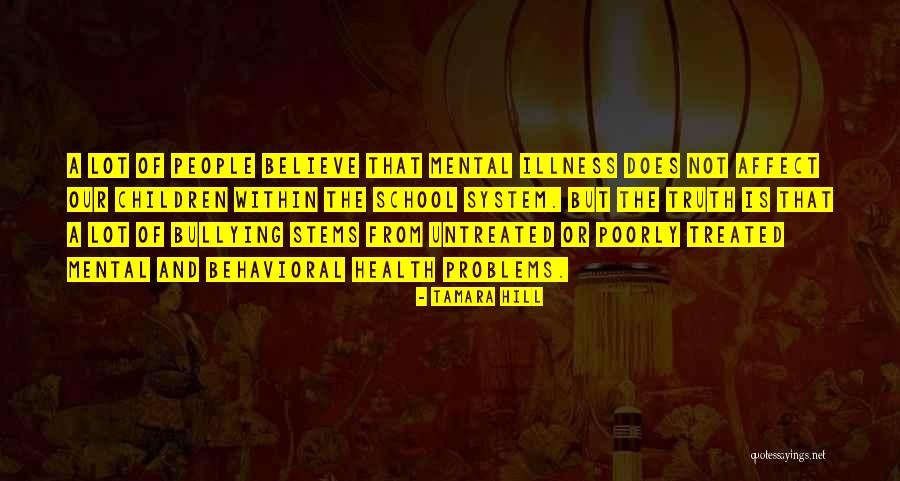
A lot of people believe that mental illness does not affect our children within the school system. But the truth is that a lot of bullying stems from untreated or poorly treated mental and behavioral health problems. — Tamara Hill
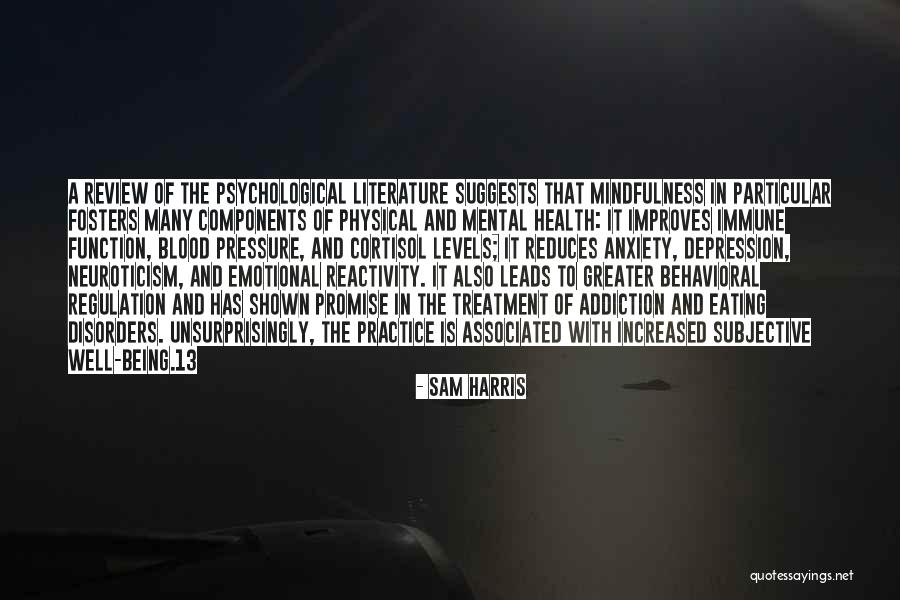
A review of the psychological literature suggests that mindfulness in particular fosters many components of physical and mental health: It improves immune function, blood pressure, and cortisol levels; it reduces anxiety, depression, neuroticism, and emotional reactivity. It also leads to greater behavioral regulation and has shown promise in the treatment of addiction and eating disorders. Unsurprisingly, the practice is associated with increased subjective well-being.13 — Sam Harris
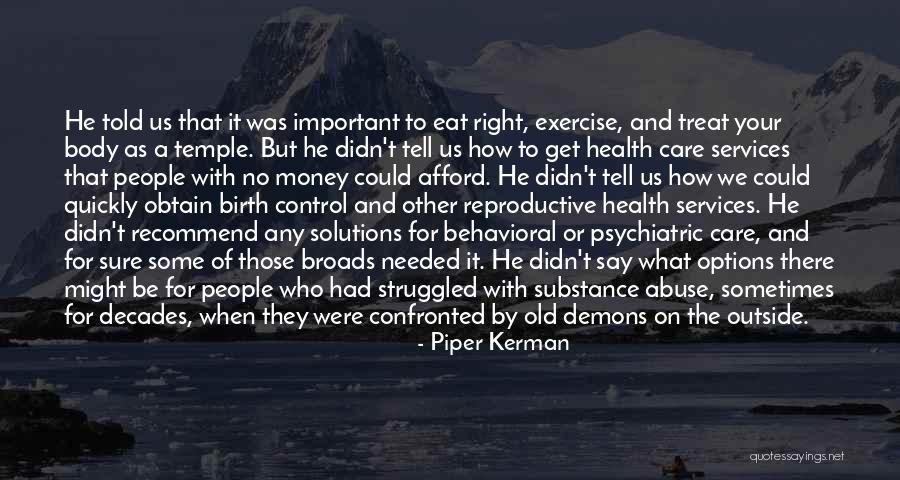
He told us that it was important to eat right, exercise, and treat your body as a temple. But he didn't tell us how to get health care services that people with no money could afford. He didn't tell us how we could quickly obtain birth control and other reproductive health services. He didn't recommend any solutions for behavioral or psychiatric care, and for sure some of those broads needed it. He didn't say what options there might be for people who had struggled with substance abuse, sometimes for decades, when they were confronted by old demons on the outside. — Piper Kerman
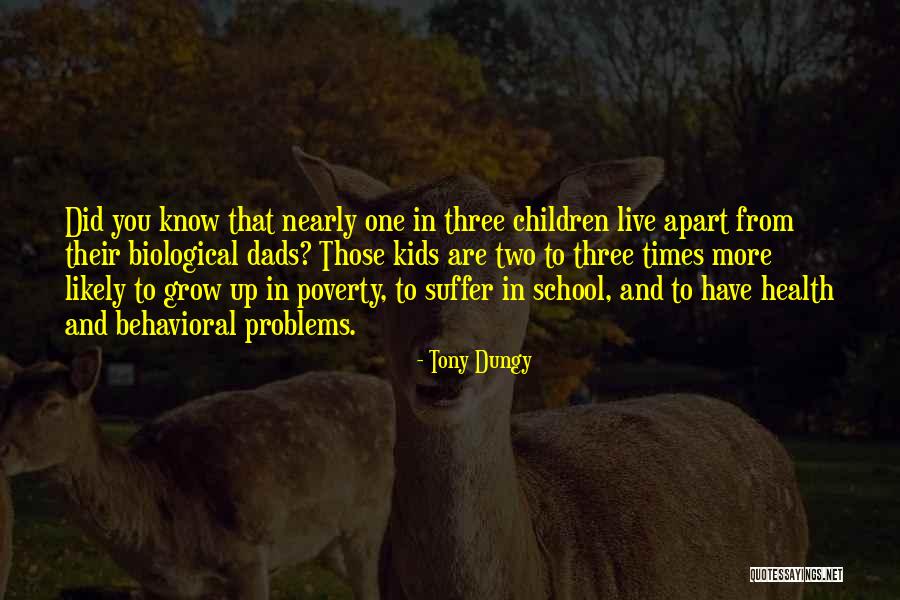
Did you know that nearly one in three children live apart from their biological dads? Those kids are two to three times more likely to grow up in poverty, to suffer in school, and to have health and behavioral problems. — Tony Dungy
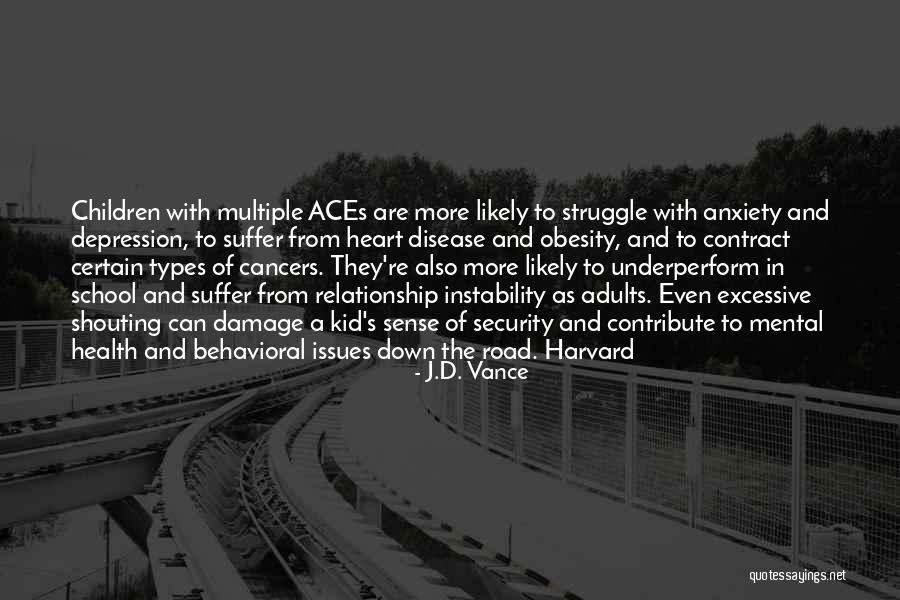
Children with multiple ACEs are more likely to struggle with anxiety and depression, to suffer from heart disease and obesity, and to contract certain types of cancers. They're also more likely to underperform in school and suffer from relationship instability as adults. Even excessive shouting can damage a kid's sense of security and contribute to mental health and behavioral issues down the road. Harvard — J.D. Vance
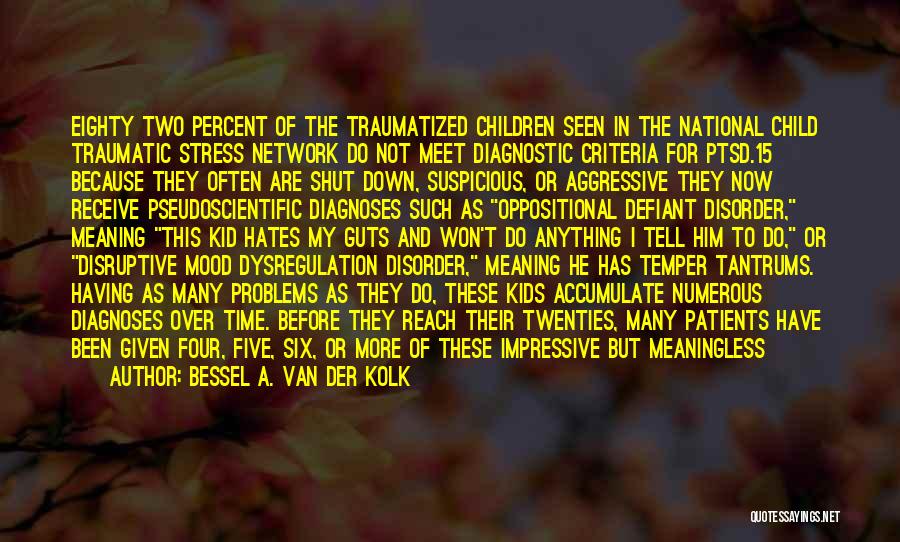
Eighty two percent of the traumatized children seen in the National Child Traumatic Stress Network do not meet diagnostic criteria for PTSD.15 Because they often are shut down, suspicious, or aggressive they now receive pseudoscientific diagnoses such as "oppositional defiant disorder," meaning "This kid hates my guts and won't do anything I tell him to do," or "disruptive mood dysregulation disorder," meaning he has temper tantrums. Having as many problems as they do, these kids accumulate numerous diagnoses over time. Before they reach their twenties, many patients have been given four, five, six, or more of these impressive but meaningless labels. If they receive treatment at all, they get whatever is being promulgated as the method of management du jour: medications, behavioral modification, or exposure therapy. These rarely work and often cause more damage. — Bessel A. Van Der Kolk
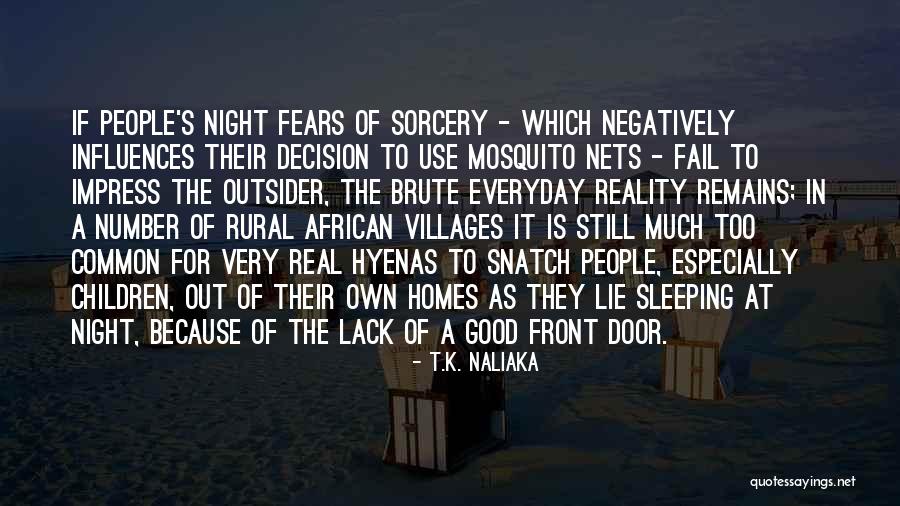
If people's night fears of sorcery - which negatively influences their decision to use mosquito nets - fail to impress the outsider, the brute everyday reality remains; in a number of rural African villages it is still much too common for very real hyenas to snatch people, especially children, out of their own homes as they lie sleeping at night, because of the lack of a good front door. — T.K. Naliaka
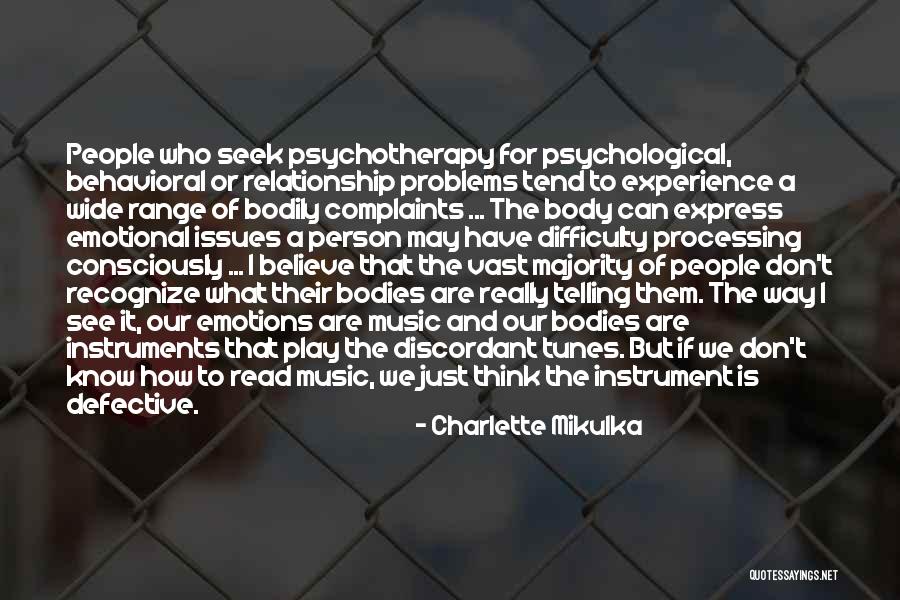
People who seek psychotherapy for psychological, behavioral or relationship problems tend to experience a wide range of bodily complaints ... The body can express emotional issues a person may have difficulty processing consciously ... I believe that the vast majority of people don't recognize what their bodies are really telling them. The way I see it, our emotions are music and our bodies are instruments that play the discordant tunes. But if we don't know how to read music, we just think the instrument is defective. — Charlette Mikulka
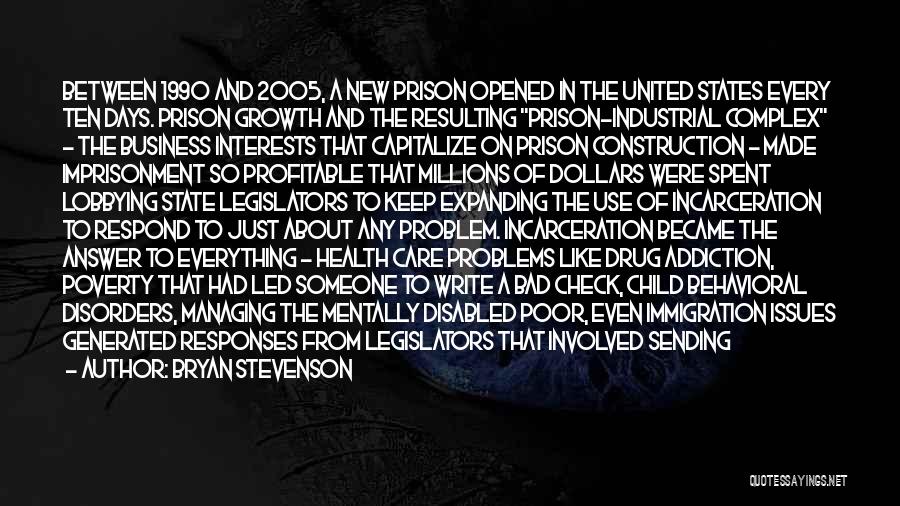
Between 1990 and 2005, a new prison opened in the United States every ten days. Prison growth and the resulting "prison-industrial complex" - the business interests that capitalize on prison construction - made imprisonment so profitable that millions of dollars were spent lobbying state legislators to keep expanding the use of incarceration to respond to just about any problem. Incarceration became the answer to everything - health care problems like drug addiction, poverty that had led someone to write a bad check, child behavioral disorders, managing the mentally disabled poor, even immigration issues generated responses from legislators that involved sending people to prison. Never before had so much lobbying money been spent to expand America's prison population, block sentencing reforms, create new crime categories, and sustain the fear and anger that fuel mass incarceration than during the last twenty-five years in the United States. — Bryan Stevenson





